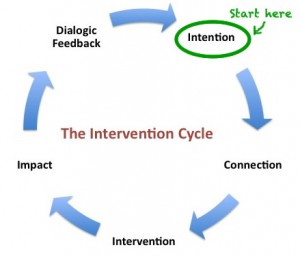Recently I have been conducting focus groups and 1:1 interviews for a new course that I’m designing. I struggled during the process of these interviews to remain impartial, not share my viewpoints excessively, ask probing questions to get at examples and underlying belief systems.
Was I wrong to remain impartial? Should I have taken this opportunity to engage the participants in a dialogue to both question their assumptions and deepen their understanding instead of treating it as fact finding mission? Or would that have come across as too didatic?
I’m reflecting back to a previous engagement that I had where the interviews I conducted resulted in a mass of confusion, and a failed design — what could I have done differently in that instance? I’m not sure the dialogue would have revealed anything different (or maybe it would have), but what would have shifted is my understanding of the dialogue. If no one could agree on outcomes, how could a better design have helped? The design should have shifted towards facilitating a dialogue, which is what was really needed.
Coming back to the present — I encouraged the participants to speak their viewpoint, and at the end, added in mine — and offered them resources and other items they could learn from. The scope of my mandate did not allow for much else. But what if I approached the focus group as a learning intervention for both of us? The realm of hermeneutics, or participatory research, you bring the unconscious forward to the conscious and together create a shared meaning — you learn from your participants and allow them to reshape your interpretations or frameworks. One might ask oneself — well, isn’t that what you’re suppose to do, learn from participants? The difference in this approach is consciousness around the creation of a shared meaning.
Taking it one step further into the obvious, focus groups can be instruments of change within an organization — a group of people coming together to express their perspectives and experiences, and then shifting into a group of people committed to making a change.
The challenge is in finding a way to make that shift.
Note: an interesting paper on use of hermeneutics by a Canadian I might add 🙂

